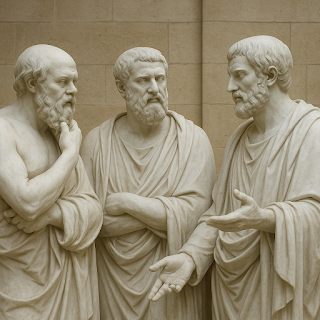The Digital Maieutic: Socrates and the Art of Prompting

Introduction Socrates likened himself to a midwife—not of bodies, but of minds. As the son of Phaenarete, a literal midwife, he inherited her art in metaphorical form, calling it maieutic technē , the midwifery of ideas. His role, he insisted, was not to implant wisdom but to assist others in giving birth to what lay dormant within them. Today, interacting with large language models (LLMs) curiously echoes this ancient method. The AI does not hold fixed truths ready to be retrieved like files in an archive; rather, it responds to how it is prompted, shaped, and questioned. Just as Socrates insisted that truth must be drawn out through skillful dialogue, meaningful engagement with AI hinges not on what we ask, but how we ask it. In this sense, the modern “prompt engineer” becomes a kind of digital midwife—an interpreter and interrogator whose task is not mere extraction, but elicitation. Socrates and the Midwife of Ideas In Plato’s Theaetetus , Socrates describes his peculiar p...
